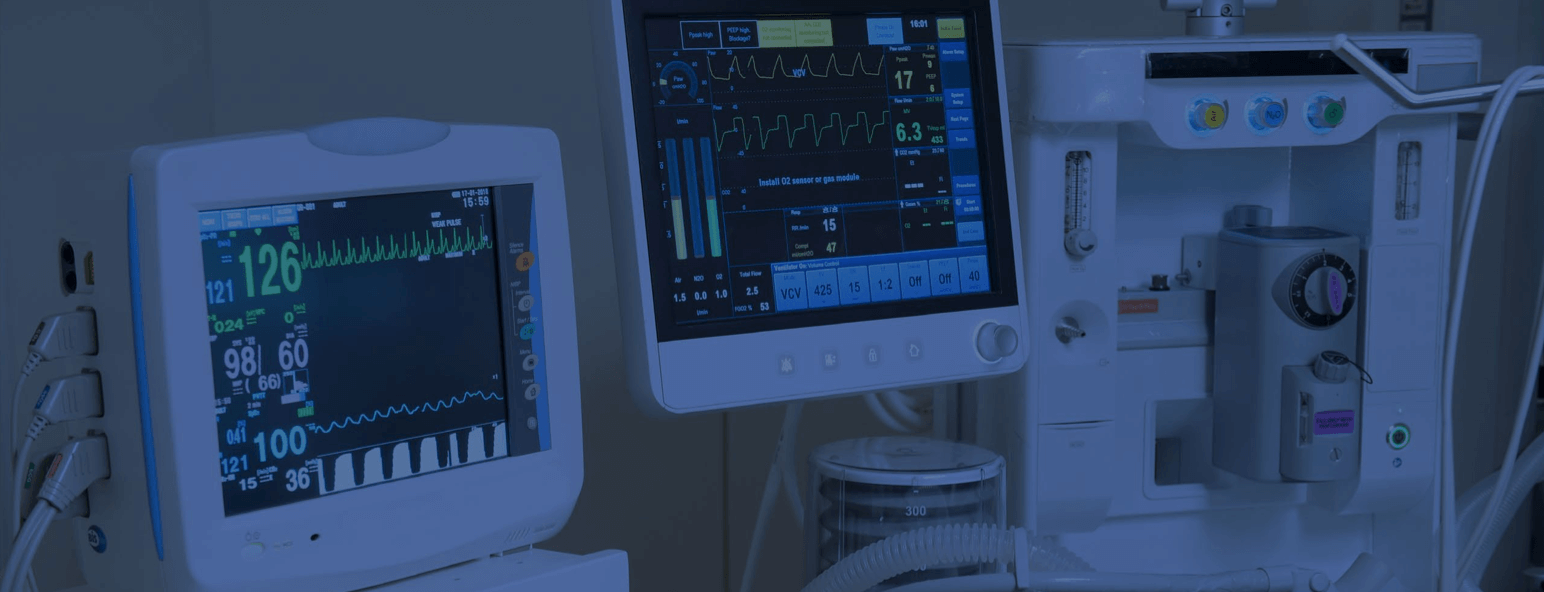Building Medtech Resilience: Technology and Sustainable Operating Models
Perspectives from Bausch Health, Medtronic, and Industry
Introduction: The imperative for digitization in regulatory affairs
Today’s medtech companies are racing to bring products to market in an age of relentless demand. But many companies continue to run their businesses on point solutions and spreadsheets, contributing to data siloes. These siloes hinder the cross-functional collaboration that is essential to innovation, execution, and speed to market. Cross-functional collaboration is important for another reason: recent regulations such as European Union Medical Device Regulation 2017/745 (EU MDR) and In Vitro Diagnostic Regulation (IVDR) revolve around the idea of medtechs establishing consistent, collaborative processes across their clinical, regulatory, and quality organizations.
To meet these standards and remain in compliance, companies must deploy technology in ways that break up data siloes and enable resilience in an ever-changing industry. Companies that have followed this approach are already reporting favorable results according to the Veeva MedTech Regulatory Benchmark Report, which reported that 67 percent of respondents have identified specific areas where digital technology adds value. Meanwhile, 62 percent believed that in the next two years, the industry will modernize by forming a single source of truth for regulatory information.
At Veeva MedTech Summit Europe, a panel of industry experts discussed these topics. The panel included Donielle Johnson, Vice President of Regulatory Affairs, Regulatory Devices, Bausch Health; John Brennan, Vice President of Regulatory Affairs and Quality (EMEA), Medtronic; and Dr. Bassil Akra, CEO, AKRA TEAM GMBH. Although each leader shared unique perspectives, the overall message was unanimous: the time for digital transformation is now.
Why agility may be better than unlimited resources
Over the past few years, medtech has tried to build resilience and transform operating models in the face of new regulations and a pandemic that brought typical business operations to a grinding halt. This situation presented medtech leaders with two serious challenges. First, they had little idea what customers and regulators expected from them because standards were constantly changing. Second, face-to-face business contact became virtually impossible during lockdowns, which meant that essential processes such as onsite audits couldn’t happen. Legislators suddenly needed to shift their work to a digital format — but many of them only have traditional paper-based processes.
“Nearly all of our systems are built for a different world — an older and more analog world. We need to be much faster and more innovative.” – John Brennan, Vice President of Regulatory Affairs and Quality (EMEA), Medtronic
According to conventional wisdom, smaller medtechs stood little chance of surviving new regulations such as EU MDR and IVDR because they simply lack the resources to implement the changes these regulations require. But according to panelists, being small and agile enables some companies to transform operations more quickly than their much larger counterparts. Bausch Health is a midsized company that found itself ill-equipped to implement EU MDR during a pandemic. The company lacked the resources of a Fortune 500 firm yet was large enough that it couldn’t simply pivot like a startup. In the end, Bausch Health found its greatest success by shifting mindset towards practical implementation projects that kept the wheels of progress constantly turning.
Medtronic’s John Brennan confirmed these observations. EU MDR left the company with many new requirements to meet and the massive task of steering all its well-established systems and processes towards compliance. “Nearly all of our systems are built for a different world — an older and more analog world,” explained Brennan. “We need to be much faster and more innovative.”
Brennan shared the reality that at Medtronic, the regulatory and quality function is seen as a cost center for the business. Over time, those costs need to stay level — or, ideally, decrease. Brennan believes that the only way to achieve this goal is through strategic use of technology.

Four keys to a sustainable MDR operating model
Before implementing new technology to increase resilience, medtech companies must establish an appropriate corporate structure and mindset towards future regulatory challenges. MDR affects all departments and requires enterprise collaboration across the entire organization — even the smallest process change calls for SOP revisions, so having just one group drive the change increases the risk of non-compliance. All parts of your business need to be taken into account, including processes, documentation, and systems to be audit-ready and compliant.
The goal is to form a sustainable MDR operating model. To get there, our panelists agree that medtechs must:
- Create a single source of truth for all regulatory and clinical data, including claims
- Evaluate current processes and identify potential (longer-term) compliance risks
- Assess how technology can support stricter data and reporting requirements across functions and departments
- Partner early with health authorities
To this end, Bausch Health is restructuring its regulatory organization to work on a global scale. The company had traditionally focused most of its resources on regulatory compliance in the U.S. and Europe, where it does most of its business. But the regulatory landscape is changing. “The U.S. and Europe are the big powerhouses, but they’re not the only ones,” said Donielle Johnson. “We’re seeing emerging regulations in China, Saudi Arabia, Jordan, and Kenya — countries that didn’t even have regulatory frameworks. So for me, it’s about looking at globalization and asking, ‘How do I help drive harmonization and switch from the traditional regulatory mindset of being reactive to being proactive?”
Medtechs often face significant barriers in making their transformations. For one, many medtechs are the products of multiple mergers and acquisitions. According to Vollebregt, these transactions are designed to pass with as little examination as possible, and executives who have a large stake in seeing mergers approved may intentionally ignore significant problems. If these problems are around invalid regulatory permissions, then the financial impact can be significant. It behooves companies not to skimp on due diligence.
Rather than focusing on having operations in these countries report back to one global head of regulatory affairs, Bausch Health is using technology to harmonize its regulatory activities. The company has long done business on a fragmented system of point solutions, with each country typically implementing its own system. “If you work at a midsized or large company, you keep acquiring systems and never fully integrate them,” Johnson explained. “We have 10 legal manufacturers right now. If they all had different systems, and I’m sitting in, say, France, I have to learn all of those systems to do business with them.”

For Johnson, the plan for overcoming this challenge has three elements:
- 1. Form a global mindset towards regulatory compliance
- 2. Establish interconnectivity across systems
- 3. Harmonize processes worldwide
But how do you garner executive support for such a plan? Johnson emphasized the need to demonstrate how a long-term investment in harmonizing the global regulatory function will drive down costs. Meanwhile, Brennan urged regulatory professionals to get involved in the product ideation process from the very beginning, working closely with business leaders and marketeers to influence a product direction that will lead to a smooth regulatory approval process.
Five takeaways for regulatory leaders
As regulatory function leaders at medtechs around the globe focus on increasing the resilience of their organizations, they should consider these five insights from our panelists:
- 1. Implementing compliance takes time away from daily duties. Many organizations underestimate how many man-hours it will take to achieve compliance and fail to analyze whether they even have the headcount to complete the necessary tasks.
- 2. Digitization still isn’t everywhere. The pandemic accelerated progress in the digital world when companies and governments realized it was the only alternative to standing still. But there are still developed countries in which digital signatures are not widely accepted. Obstacles like this can hinder the implementation of corporate digitization initiatives.
- 3. Choose a methodology that reduces costs. Too many medtechs still focus on correcting the regulatory process issues in their manufacturing processes at the very end, when it is most costly. Instead, they should start off by implementing a methodology that reduces the burden and the cost of resources by increasing efficiency.
- 4. Plan for future state of your company. The medtech industry is on a growth trajectory. Any regulatory roadmap should reflect that trajectory, specifying the people and technology you’ll need to support your growth.
- 5. Don’t wait for EUDAMED. The planned European database on medical devices (EUDAMED) should be a boon for any medtech that does business in Europe. But it won’t bring everyone into a digital future overnight. Regulatory leaders need to continue speaking with government regulators to keep abreast of what’s going on at the clinical level, what patients need most, and how technology can help support process standardization that will benefit everyone.

Hear the full conversation among our panelists from Bausch Health, Medtronic, and AKRA TEAM GMBH. Watch the playback now.